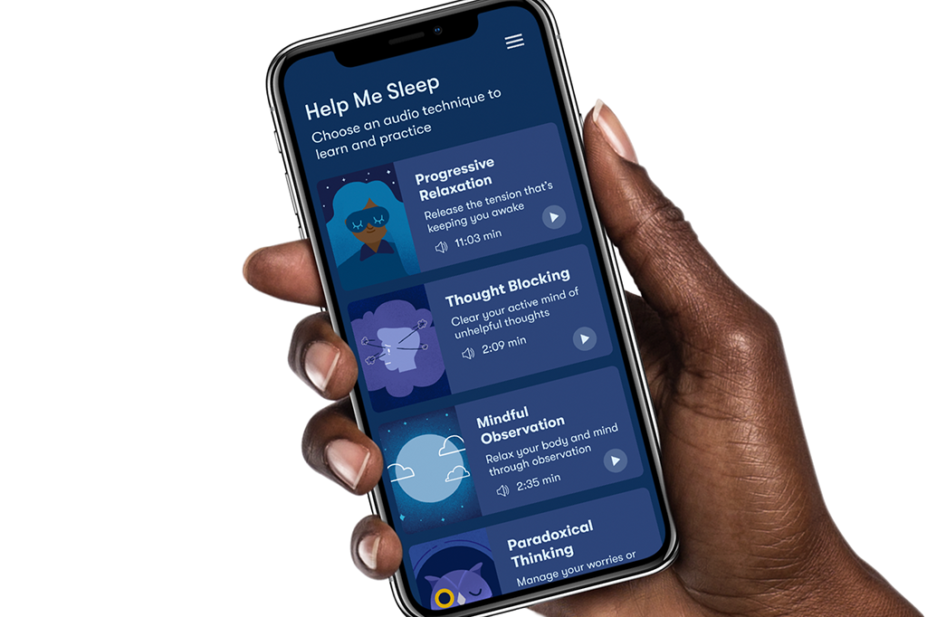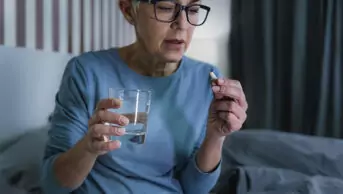
National Institute for Health and Care Excellence
The National Institute for Health and Care Excellence (NICE) has recommended the use of an app to treat insomnia, after evidence from randomised controlled trials showed that it was more effective than taking sleeping pills.
In a statement published on 20 May 2022, NICE said that up to 800,000 people could benefit from the Sleepio app in England, which uses an artificial intelligence (AI) algorithm to provide people with tailored digital cognitive behavioural therapy for insomnia (CBT-I).
NICE said the app, which costs £45, could reduce the use of dependence-forming medicines, such as zolpidem and zopiclone, as well as reduce NHS costs on GP appointments and sleeping pill prescriptions.
Sleepio provides a six-week self-help programme, involving a sleep test, weekly interactive CBT-I sessions and a daily sleep diary. Users can fill in the diary manually or the data can be automatically uploaded from a compatible wearable tracking device.
The CBT-I sessions focus on identifying thoughts, feelings and behaviours that contribute to the symptoms of insomnia, with the aim of improving the way a person thinks about sleep and introducing behavioural interventions to promote a healthy sleep routine.
Clinical evidence presented to NICE’s medical technologies advisory committee from 12 randomised controlled trials showed that the app was more effective at reducing insomnia than sleep hygiene and sleeping pills.
According to the NICE guidance, 10 of the trials used intention-to-treat analyses to control for high dropout rates and, although the studies are small relative to the potential reach of Sleepio, they “are adequately powered and well reported”.
“Until now, people with insomnia have been offered sleeping pills and taught about sleep hygiene, so our committee’s recommendation of Sleepio provides GPs and their patients with a new treatment option,” said Jeanette Kusel, acting director for MedTech and digital at NICE.
“Our rigorous, transparent and evidence-based analysis has found that Sleepio is cost-saving for the NHS compared with usual treatments in primary care. It will also reduce people with insomnia’s reliance on dependence-forming drugs, such as zolpidem and zopiclone.
“This is a good example of where a digital health technology can help the NHS.”
The NICE committee said that, at £45 per person, the app was more cost-effective than usual treatment in primary care. This was based on an analysis of primary care resource use data before, and one year after, the app was introduced in nine GP practices.
The independent NICE committee recommended that clinicians carry out a medical assessment of patients who are pregnant or have comorbidities before referring them to use Sleepio.
They also recommended more research or data collection to show how effective the app is compared with face-to-face CBT-I.


